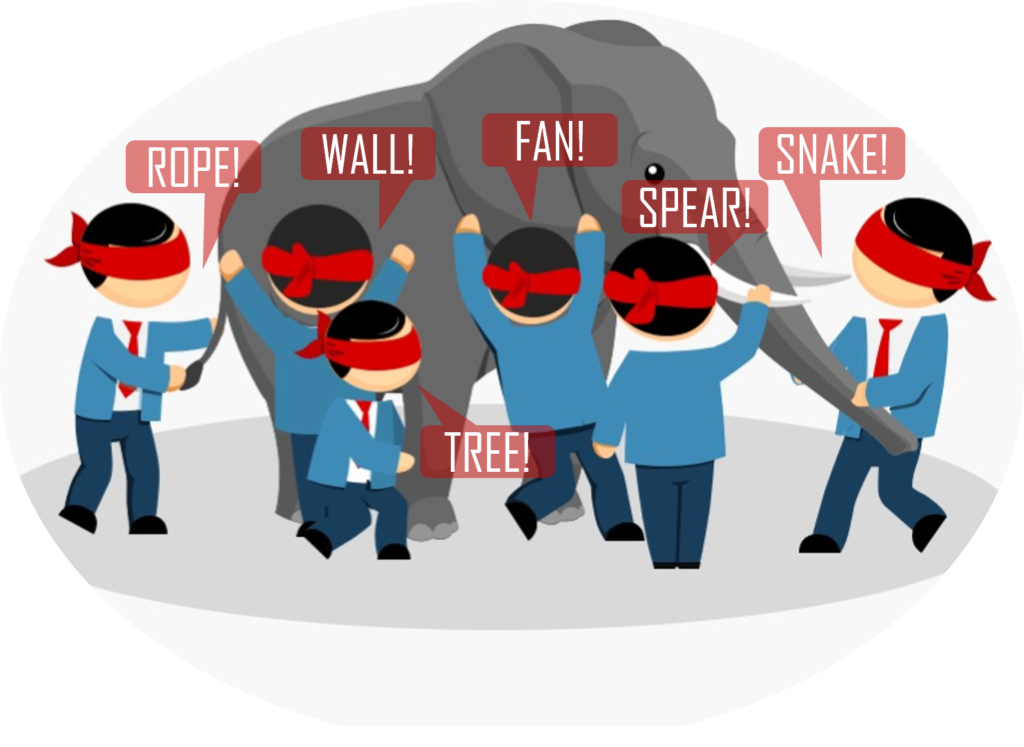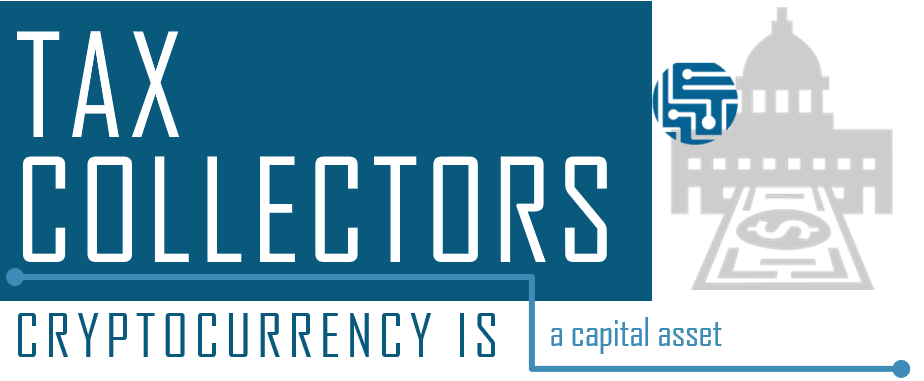An ancient Indian folk tale tells the story of six blind men who attempt to learn what an elephant is, but disagree because they each touch only one part of the elephant. The man who touches the elephant’s side insists it’s like a wall; the one who touches the tusk considers the elephant to be like a spear; the one who feels its trunk insists it’s most like a snake; the one who grabs one of the elephant’s legs argues it is like a tree; the one who reaches its ear thinks it must be a massive fan; and the one who grabs the tail demands that the elephant is most similar to a rope. The parable concludes with the blind men discussing their different encounters with the elephant and using those various perspectives to construct an image much closer to the truth.

In some ways, cryptocurrency is like the elephant, and depending who you ask you may receive very different answers about what cryptocurrency is. By compiling those perspectives, however, we can assemble a better understanding of cryptocurrency.
CREATORS
Cryptocurrency is a decentralized financial system (or DeFi) based on blockchain technology. For more on how blockchain technology works, review Henry’s Three-minute Introduction to the Blockchain Technology.
The idea for modern cryptocurrency emerged from a white paper in 2009. After gaining little traction in early years, several cryptocurrencies, including Bitcoin and Ethereum, have gone meteoric within the past year.
Creators envisioned a more efficient and secure way to transfer payments, without going through “regulated” channels such as the traditional banking system and government monitoring—cryptocurrencies cut out the middle man.

USERS (spenders)
For cryptocurrency users, the currency provides an easy way to process transactions without requiring a third party. As cryptocurrencies become more common, companies are also getting on board. An early adopter was Tesla, who decided to accept Bitcoin as payment in February of 2021. Tesla rescinded that decision shortly after, however, citing concerns about the environmental impact of bitcoin mining.
PayPal is also getting its feet wet in the cryptocurrency market, announcing in October of 2021 that they would allow users to buy, sell, and hold cryptocurrency directly from their PayPal account. That functionality launched in the US in November, and PayPal has plans to expand it globally.

TAX COLLECTORS (IRS)
The IRS treats cryptocurrency just like other assets – if you make gains, you owe taxes! Additionally, when you use cryptocurrency for a purchase, you realize gains at the time of that purchase. In other words, users have to calculate their gain or loss every time they purchase goods or services using cryptocurrency. This is a significant burden and a real obstacle to the widespread adoption of cryptocurrencies.

CENTRAL BANKERS
Central Bankers can use cryptocurrency as a roadmap to creating their own digital currencies. China has continued to experiment with digital RMB, announcing earlier this month that it will hand out 40 million renminbi ($6.2 million) in a lottery to citizens in Beijing. China’s digital currency is built of off the same blockchain framework utilized by cryptocurrencies. Other countries should likewise be able to mimic this structure.

SPECULATORS
Over the past year, cryptocurrencies have become one of the trendiest assets on the market. There are a wide range of reasons that investors are buying up these volatile assets. Many of these buyers would be better classified as “speculators” than “investors,” as they’re often looking to make a quick buck rather than planning to stay invested over the long term. Cryptocurrency prices fluctuate significantly day-to-day.

CRIMINALS
For criminals, cryptocurrency provides a new way to demand ransom payments. A recent example of this is the May 2021 cyberattack on the Colonial Pipeline Company. Hackers were able to anonymously demand payment in the form of bitcoin, forcing Colonial to pay up in order to regain access to their systems. Over Memorial Day weekend just a few weeks ago, there was an attack on JBS which cost them approximately $11 million (in the form of 301 bitcoin).

THE REST OF US (including long-term investors)
What is cryptocurrency to the rest of us? A fad? Nothing? New applications may emerge based on the technology, much like companies emerged and became household names because of the internet. We’ll have to wait and see. Several renowned investors – among them Warren Buffett, Bill Gates, and Jamie Dimon – are highly skeptical of the legitimacy of cryptocurrency. Entrepreneurs such as Elon Musk and Tyler and Cameron Winklevoss, on the other hand, have repeatedly expressed confidence in its future.
Which group of investors do you think is right? By giving you perspective from various angles, we hope this guide will help you make informed decisions. Whether you decide to dip your toe in the water or not, please consider us a valuable resource and don’t hesitate to reach out with any questions you may have.





